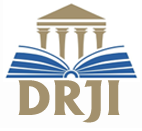MANAJEMEN MUTU INTERNAL DALAM MEMBANGUN SATUAN PENDIDIKAN RAMAH ANAK DI RA PERWANIDA
Abstract
This study focuses on internal quality management efforts in creating a child-friendly educational environment at RA Perwanida 1 Pesanggaran, Banyuwangi. The background of this research is based on the need to improve educational quality through enhancements in managerial aspects, including planning, implementation, and evaluation. The aim of the study is to establish an educational environment that is safe, comfortable, and supports children's holistic development. Using a qualitative case study approach, the research delves into the school's efforts to implement child-friendly principles through internal quality management strategies. Primary data were collected through in-depth interviews with the principal, teachers, staff, and parent representatives, while supporting data were obtained from policy documents and school evaluation reports. To ensure data validity, source and method triangulation techniques were employed. The study identifies five main strategies implemented by RA Perwanida: strengthening internal policies to establish a transparent system, prioritizing anti-bullying education to build children's character, enhancing the quality of a safe and comfortable learning environment, developing a child rights-based curriculum, and encouraging active participation from parents and the community. These strategies have proven effective in supporting the establishment of a child-friendly educational institution. The research concludes that the success of building a child-friendly school heavily relies on well-planned and integrated internal quality management. The implications of this study highlight the importance of systematic data-based evaluations and active collaboration between schools, parents, and communities to ensure program sustainability. Empirically, this study provides a significant contribution to the development of child-friendly education models, particularly in early childhood education settings.
Keywords
Full Text:
PDFReferences
Akhyar, Y. (2024). Implimentasi Program Sekolah Ramah Anak Di Tingkat Sekolah Dasar. Al-Mujahadah: Islamic Education Journal, 1(2), 155-168.
Arifudin, O., Trisnamansyah, S., & Sauri, R. S. (2022). Implementation Of Internal Quality Assurance System In Order To Improve The Quality Of Polytechnical Research. International Journal of Social Science, Education, Communication and Economics (SINOMICS JOURNAL), 1(3), 297-306.
Boulaamane, K., & Bouchamma, Y. (2021). School-immigrant family-community collaboration practices: Similarities and differences. Canadian Journal of Educational Administration and Policy, 197, 76-93.
Chaniago, N. S., Nasution, I., & Sarah, M. (2022). Penerapan Standar Operasional Prosedur (SOP) Dalam Meningkatkan Layanan Akademik Di MAS Al Washliyah 22 Tembung Kecamatan Percut Sei Tuan Kabupaten Deli Serdang. Jurnal Malay: Manajemen Pendidikan Islam & Budaya, 2(3).
Divecha, D., & Brackett, M. (2020). Rethinking school-based bullying prevention through the lens of social and emotional learning: A bioecological perspective. International Journal of Bullying Prevention, 2(2), 93-113.
Ernawatie, E., Berliani, T., Purnomo, W., Eshariyani, E., Limin, D., Radiafilsan, C., Chairudin, M., & Kristina, D. (2024). Manajemen Proyek Penguatan Profil Pelajar Pancasila di Taman Kanak-Kanak (TK) Sinar Surya Palangka Raya. Journal of Education Research, 5(4), 4594-4603.
Fadhli, M. (2020). Sistem Penjaminan Mutu Internal Dan Ekstenal Pada Lembaga Pendidikan Tinggi. Al-Tanzim: Jurnal Manajemen Pendidikan Islam, 4(2), 171-183.
Fitriani, S. (2020). Promoting Child-Friendly School Model through School Committee as Parents' Participation. International Journal of Evaluation and Research in Education, 9(4), 1025-1034.
Fitriani, S., & Qodariah, L. (2021). A Child-Friendly School: How the School Implements the Model. International Journal of Evaluation and Research in Education, 10(1), 273-284.
Gaffney, H., Ttofi, M. M., & Farrington, D. P. (2021). What works in anti-bullying programs? Analysis of effective intervention components. Journal of School Psychology, 85, 37-56.
Guy-Evans, O. (2020). Bronfenbrenner's ecological systems theory. Simply Psychology.
Harahap, N. (2020). Penelitian kualitatif.
Hasani, I., & Kurniawati, H. (2024). Membangun Lingkungan yang Mendukung Pertumbuhan dan Pembelajaran: Studi Kasus Sekolah Ramah Anak di SDIT AR-Rahmaniyah Depok. Khatulistiwa: Jurnal Pendidikan Dan Sosial Humaniora, 4(3), 257-274.
Herawan, N. S., Putri, S. D., Julianti, S., & Ariesmansyah, A. (2023). Collaborative Governance Dalam Upaya Peningkatan Indeks Mutu Pendidikan di Jawa Barat Melalui Program Sekolah Gratis. Jurnal Ilmiah Wahana Pendidikan, 9(7), 324-333.
Husnunnadia, R., & Slam, Z. (2024). Pencegahan bullying di sekolah: Mengimplementasikan pendidikan dan kewarganegaraan untuk penguatan hak dan kewajiban anak. JPK (Jurnal Pancasila Dan Kewarganegaraan), 9(1), 28-42.
Indonesia, K. P. A. (2019). Laporan Kinerja KPAI-2017.
Jailani, M. S. (2023). Teknik pengumpulan data dan instrumen penelitian ilmiah pendidikan pada pendekatan kualitatif dan kuantitatif. IHSAN: Jurnal Pendidikan Islam, 1(2), 1-9.
Loper, A. C., Jensen, T. M., Farley, A. B., Morgan, J. D., & Metz, A. J. (2022). A systematic review of approaches for continuous quality improvement capacity-building. Journal of Public Health Management and Practice, 28(2), E354-E361.
Muakhirin, B. (2022). Manajemen sekolah ramah anak dalam mewujudkan mutu pelayanan pendidikan. Media Manajemen Pendidikan, 5(2), 277-288.
Mulyasa, E., & Aryani, W. D. (2022). Implementasi Sistem Penjaminan Mutu Internal Di Era Merdeka Belajar. Aksara: Jurnal Ilmu Pendidikan Nonformal, 8(2), 933-944.
Nabila, S. S., Burhanuddin, B., & Arifin, I. (2024). MANAJEMEN SEKOLAH RAMAH ANAK PADA SEKOLAH BERBASIS KEAGAMAAN. Jurnal Pembelajaran, Bimbingan, Dan Pengelolaan Pendidikan, 4(12), 2.
Rahmi, A. A., Hizriyani, R., & Sopiah, C. (2022). Analisis Teori Hierarki of Needs Abraham Maslow Terhadap Perkembangan Sosial Emosional Anak Usia Dini. Aulad: Journal on Early Childhood, 5(3), 320-328.
Shah, R. K. (2019). Child-Centered Education: Criticisms. Shanlax International Journal of Education, 8(1), 22-37.
Sudirman, A., Setiawan, E., & Septiani, E. (n.d.). PROMOTING CHILD-FRIENDLY EDUCATION IN THE DIGITAL AGE: A COMMUNITY SERVICE PERSPECTIVE. Aplikasia: Jurnal Aplikasi Ilmu-Ilmu Agama, 22(2), 137-150.
Syakhrani, A. W., & Aslan, A. (2024). THE IMPACT OF INFORMAL FAMILY EDUCATION ON CHILDREN'S SOCIAL AND EMOTIONAL SKILLS. Indonesian Journal of Education (INJOE), 4(2), 619-631.
Ulfah, U., Hanafiah, H., Barlian, U. C., & Koswara, N. (2022). Management of Child Friendly Schools To Develop Students Psychological Well Being. International Journal of Education and Digital Learning (IJEDL), 1(2), 43-48.
Yus, A., & Sari, W. W. (2020). Pembelajaran Di Pendidikan Usi Dini. Prenada Media.
DOI: http://dx.doi.org/10.30821/hijri.v13i2.22254
Refbacks
- There are currently no refbacks.
Copyright (c) 2024 indah inayah

This work is licensed under a Creative Commons Attribution-NonCommercial-NoDerivatives 4.0 International License.
Organizational Collaboration:
Hijri: Jurnal Manajemen Kependidikan dan Keislamanhas been indexed by:
Jurnal Hijri by Program Studi Manajemen Pendidikan Islam FITK Universitas Islam Negeri Sumatera Utara is licensed under a Creative Commons Attribution-NonCommercial-ShareAlike 4.0 International License.










2.png)


